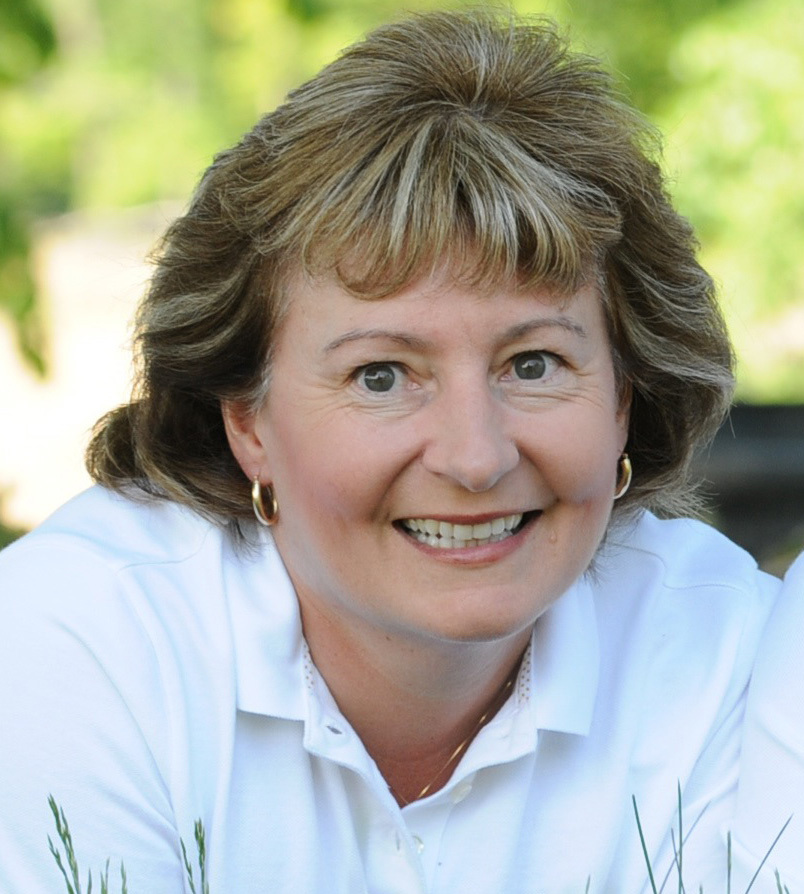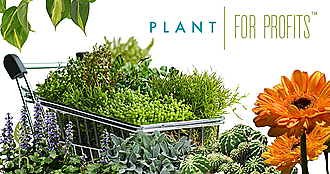Women in Horticulture Series: Dr. Bridget Behe, Michigan State University
In my Women in Horticulture Series, I interview green industry professionals about their experiences as a woman, and harvest advice for success for other women in the industry.
Name: Dr. Bridget K. Behe, Ph.D.
Profession: Professor of Horticultural Marketing
Company/Position: Professor, Michigan State University
Age: 57 (but feel about 37)

Q: Where and how did you start in your career in Horticulture?
Both of my grandmothers were avid gardeners. My father’s mom had a large vegetable garden. My mother’s mom had an enormous flower garden and was one of the Jackson & Perkins rose testers in the 1970’s. I thought I wanted to be a medical doctor, but also wanted to enjoy my life through college and in the early years of my career. I love biology (animal and plant) and so an academic advisor at Penn State pointed me to horticulture and found my niche.
Q: Where are you now in your career in Horticulture? Do you consider yourself a leader?
I’m closer to the end of my career than the beginning. I look at my cv and it certainly tells the story of my career in terms of where I have worked, with whom I’ve worked, and the projects I’ve completed. Yes, I see myself as a pioneer more than a leader. A pioneer opens the way for others.
Q: What accomplishment, that you specifically have contributed to your professional success, are you most proud of?
The single accomplishment I’m most proud of is earning tenure at two different institutions. Earning tenure is an excruciating process where your accomplishments (as outlined in your cv) are reviewed and voted upon by your colleagues in a department, then in the college, then across the university. I gave up my tenured position at Auburn University to join the faculty at Michigan State. Since they wouldn’t negotiate with me for tenure, I had to go through the entire process again. If I didn’t earn tenure at Michigan State, I would have been out of a job. It was a big gamble, but I believed I could do it. So did my husband who quit his job and we, along with our then three-year-old son, moved to Michigan.
Q: How would you describe your career path, specifically as a woman in the green industry; specifically, did you experience any challenges (for flat out discrimination or even harassment – if you feel comfortable addressing it) you felt were unique to you as a woman?
I had naively thought I would be judged only on my accomplishments and, therefore, I’d be judged equitably with my colleagues. Numerous times I’ve been discriminated against because I was female. It happened. Sometimes it still happens. Most of the time the men who discriminate against women (me, in particular) are completely unable to see anything wrong with what they are doing or did. I was powerless to change their choices. The best I could do was to persevere and hope that my record would speak for itself.
Q: If such challenges did exist along your path, how did you overcome…or if not totally overcome…how did you persist through these challenges and succeed despite them? Can you describe specific tactics you employed that helped you be empowered?
I think for me it was knowing, deep down inside, that I was right and that right would prevail. Sheer determination to succeed. I wanted those things I went after (tenure, promotion) very much. I had to believe it would work out for me. There was no alternative. There is no “try”, right?
Q: In what ways, if any, do you feel you used your strengths as a woman to help you gain advantages in your work, or reach your success goals? How would you recommend women today leverage their unique strengths as women?
I think many women can “read” a situation and discover what the underlying agenda items are. Intuition perhaps. I contend that what other people think of you (of me, in my case) isn’t really any of my concern because I can’t change it. If they want to prejudge me, my performance is all I can rely on. I would tell women to build their confidence by stepping up and doing what they want to do as long as it is ethical and contributes to the performance of the company. We’re hired to do a job. How well we do that job should be the only thing that matters. Keep focusing on that and your success may contribute to changing their mind.
Q: In what areas of business operations, management, and co-worker communications do you see opportunities for improvement when it comes to work parity for women?
While I see the gender gap closing among our consumers, women still buy a majority of horticultural products. Many companies have seen the merit in having women in key positions. Horticulture should be no exception. I think that they understand the customer base and more easily relate to it. I think women often have more emotional intelligence (Daniel Goleman developed this term and wrote about it in Harvard Business Review) and can be just as or more effective leaders because of the combination of technical accomplishment and emotional intelligence.
Q: What future goals do you have for yourself as you continue your career in the green industry?
My hope is to leave this industry with more successful and happy women in key positions than when I entered it. I had only two female mentors who were so helpful and amazing accomplished women themselves. I had (and still have) a great small cohort of women at my rank with whom I can talk. I want to encourage and empower more women to be successful and happy with a career in horticulture. I want to see more faces like mine. I want to hear more voices like mine. I want to see the change that I’ve wanted more than 30 years to see. I suspect the change won’t be monumental, but I will have been proud to have nudged that change forward a bit.
Q: Do you mentor women in the industry, and if so how?
Yes. Often and with as many as I can. Talking with them about work but also life. Skip the balance part. Management is the word I like to use about working with others. It starts by managing the interview so your skills and talents are highlighted. Then manage the negotiations so it is a “win” for both sides. Then, manage the early days with your boss, peers, and subordinates so you can contribute to the overall company goals. Do that and you can better manage the steps to promotion. Then, think about next steps and manage the long term goals. Relationships are important, too. Nurture good relationships, keep them as an important part of your life, and invest in them. Prune the relationships that aren’t positive and enjoyable. I’m a big believer in the 7 Habits of Highly Effective People. I teach it and strive to live by it.
Q: Do you belong to professional organizations or networking groups (not limited to green industry) if yes, which ones do you find to be the most professionally effective– especially as a woman?
I find the informal interactions (and some lead to collaborations) to be more helpful. More women seem willing to share those feelings (e.g. “something like that happened to me and here’s what I did” or “gosh I felt like I was the only one who felt like that” or “that happened to you also?”) in a setting with few others around rather than in a large group. Interactions at those meetings, especially those in the hall or over a drink, are the ones where I learned the most.
Q: Name one think that you do to stay relevant in the industry as times, trends, and technology change?
Can I have two? Read and travel, probably in that order. I read the Harvard Business Review and many of the trade magazines/blogs. Reading in the horticulture industry helps but so do the marketing and management articles I read about other industries. I think that is where many of the changes will arise that make a difference in our industry.
Q: What piece of wisdom would you like to pass on to:
- Women of your own age in the workforce. Congratulate yourself for your accomplishments, even if no one else does.
- Women younger than you who are coming up in their careers. Believe in yourself. Persevere. Keep moving forward because there is nothing that can change yesterday.
Any additional comments?
Yes. Thanks for doing this. Maybe in 50 years people will wonder why you wrote this piece because they would consider it silly that women and men weren’t equal in the workplace.
Leslie: Amen sister!


